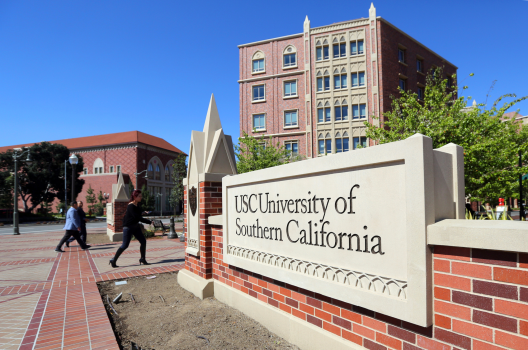California is banning legacy admissions at private colleges and universities, ensuring that some of the country’s most selective schools will not favor applicants with familial or monetary connections to the schools.
Gov. Gavin Newsom on Monday signed AB 1780 into law, prohibiting legacy and donor preferences in admissions at private, nonprofit institutions. The new rule will go into effect in the fall of 2025. Schools including Stanford University, the University of Southern California and Santa Clara University will now join the California State University system and other public institutions in the state that have long-banned legacy preferences.
“In California, everyone should be able to get ahead through merit, skill, and hard work,” Newsom said in a news release announcing the decision. “The California Dream shouldn’t be accessible to just a lucky few, which is why we’re opening the door to higher education wide enough for everyone, fairly.”
The news comes more than a year after the Supreme Court struck down race-conscious admissions programs at the University of North Carolina and Harvard, sharply limiting colleges and universities from considering race in admission.
Assemblyman Phil Ting, a San Francisco Democrat who wrote the bill, has been advocating for the end of legacy admissions in the state since the 2019 college admissions scandal — in which dozens of people, including Hollywood actors, took part in a college entrance exam cheating scheme. He attributed the passage of AB 1780 to the Supreme Court affirmative action ruling.
“It’s all about fairness,” Ting told NBC News in an interview Tuesday. “You want people to work hard and achieve access to education because they’ve worked hard and they’re really the most qualified students, not because they have wealthy parents or wealthy families who are donors. This is about making sure we’re leveling the playing field.”
The law will affect schools with among the highest rates of legacy admissions — Stanford, USC and Santa Clara. In 2022, legacy admissions accounted for about 14 percent of Stanford and USC’s enrollment and about 13 percent at Santa Clara, according to Ting’s statement.
The law requires all private colleges and universities in the state to disclose compliance with the new rule by submitting an annual report. Stanford officials told NBC News that the university “will be continuing to review its admissions policies” before the new legislation takes effect.
In a statement to NBC News, USC officials said the university is “always looking to evolve our admissions processes and recruitment efforts to bring as many of these students to USC as we can. We will do so in compliance with the law.”
Santa Clara officials said in a statement that the school has “aggressive” outreach and support programs to ensure diversity on campus.
“Santa Clara University is committed to fair and equitable admissions practices, in compliance with all state and federal requirements,” the university said in a statement to NBC News.
“Legacy status alone has never been determinative of a student’s admission. Factors such as academic quality, leadership, preparedness and resilience in the face of challenges are the key admissions considerations for students who apply.”
The new rule would not be reflected in incoming classes until the fall of 2026. Last month, some of the nation’s top schools revealed that the high court’s affirmative action ruling led to a dip in Black student enrollment. Amherst College, the Massachusetts Institute of Technology and Washington University in St. Louis are among at least a half-dozen schools that had drops in Black student enrollment for the 2024 academic year.
